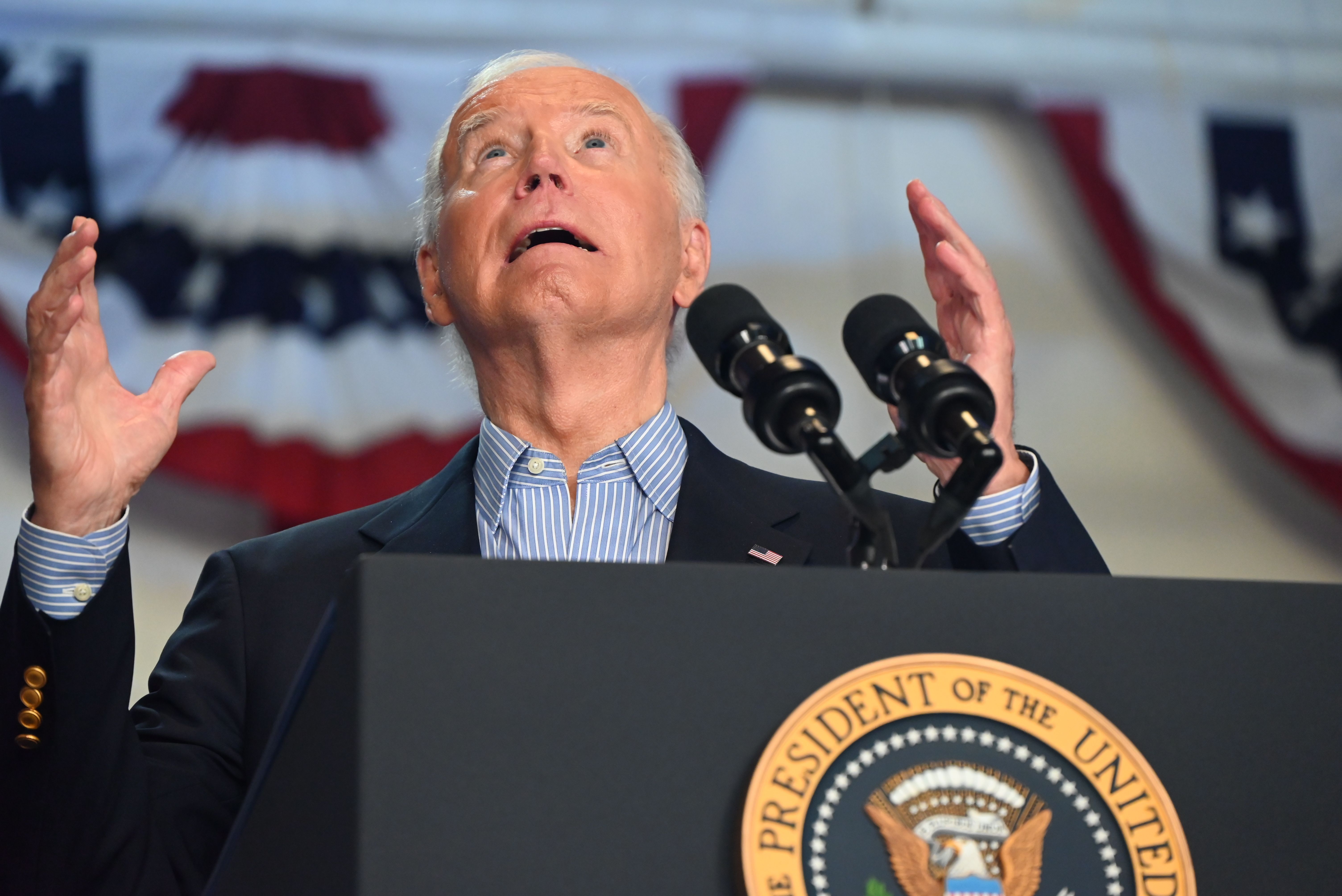Only the “Lord Almighty” could stop his campaign: Four takeaways from Biden’s interview
Here are the main takeaways and the questions that remain.
1. Biden has no plans to step down. When asked whether he would step down if trusted members of the president’s party like Nancy Pelosi or Chuck Schumer advised him to, Biden replied “that’s not going to happen,” and that only if “the Lord Almighty” came down and told him he couldn’t win he would withdraw. But short of that, he said he believes he is the only Democrat who can defeat Donald Trump.
The interview came hours after Biden held a campaign rally in Wisconsin, where he insisted: “I am running, and I’m going to win again.”
2. Biden is in denial. Since the debate, Biden has dropped further behind Trump in the polls, lost donors, and is facing growing calls from members of his own party to step aside.
Yet, when pressed about national polls showing him trailing Trump – Monday’s Times/Siena Poll showed Biden five points behind Trump, 37% to 42% respectively – Biden countered that polling can be misleading while also touting that his own campaign polls showed the race as a “toss-up.”
Four Democratic congressmen have publicly called for Biden to withdraw, and Democratic senators are set to meet next week to discuss concerns over his electability. But when Stephanopoulos asked Biden if he was aware of calls from within his party for him to step aside, Biden said he had heard it only “from the press.”
3. He won’t take a neurological exam. Biden dodged questions about whether he would take a neurological exam, cognitive test, or independent medical evaluation, saying that as president, “I have a cognitive test every single day.”
He blamed his poor debate performance on a bad cold, a bad day, and on Trump distracting him. But he refused to acknowledge any decline in his health that could affect his ability to serve as president. However, during a meeting with Democratic governors on Wednesday, Biden said he needed to get more sleep and work fewer hours, including curtailing events scheduled after 8 pm.
4. He focused on his record, saying he is a better choice than Trump. Stephanopoulos gently, but persistently, questioned Biden about his alleged pattern of cognitive decline and was met with a familiar pivot from the president: Biden pointed to policy accomplishments over the past four years. While he articulated his achievements like expanding NATO, cutting prescription costs, and creating jobs better than during the debate, the interview was meant to quell voters’ concerns about his age, not whether he had succeeded in his first term.
He also argued that he was a better alternative to Trump, who he repeatedly called a liar. But when asked how he would feel if remaining in the race led to a Trump victory, he replied “as long as I gave it my all, that’s what this is all about.”
Will it change anyone’s mind? Probably not. Although the president put on a stronger showing than on the debate stage, “a pre-recorded interview with a neutral to friendly interviewer will do little to assuage mounting concern over Biden's age,” says Eurasia Group’s US expert Clayton Allen. “His best-case scenario for tonight was to avoid additional damage and live to campaign another day.”
Following the interview, Rep. Lloyd Doggett, a Texas Democrat who was the first House Democrat to call for Biden to drop out of the race, said “The need for him to step aside is more urgent tonight than when I first called for it on Tuesday.”
Will it stop the hemorrhaging of donors? Biden may be intent on staying on the ballot, but some donors have been jumping ship. Several major Democratic donors, including Abigail E. Disney, have publicly announced that they will withhold or redirect donations unless Biden steps aside. One group is even working to raise as much as $100 million for a fund called the Next Generation PAC, which would be used to support a replacement candidate.
Mark Buell, a prominent Democratic donor, said after the interview that “Biden is on a slide that he is trying to curb. If he isn’t successful, he may soon become a verb.”
But how would a new campaign be funded if he did step aside? Biden and Vice President Kamala Harris have already raised $212 million as of the beginning of last month, leading to questions about whether that money could be used to support another candidate.
People close to Harris have confirmed that she has been reaching out to business leaders to assess how she could go about building her donor base.
“Kamala is the only candidate who can access the Biden campaign coffers, and even then only if she is at the top of the ticket,” explains Allen. “This is one major reason – among many others – that she is the most likely replacement should Biden choose to drop out.”
